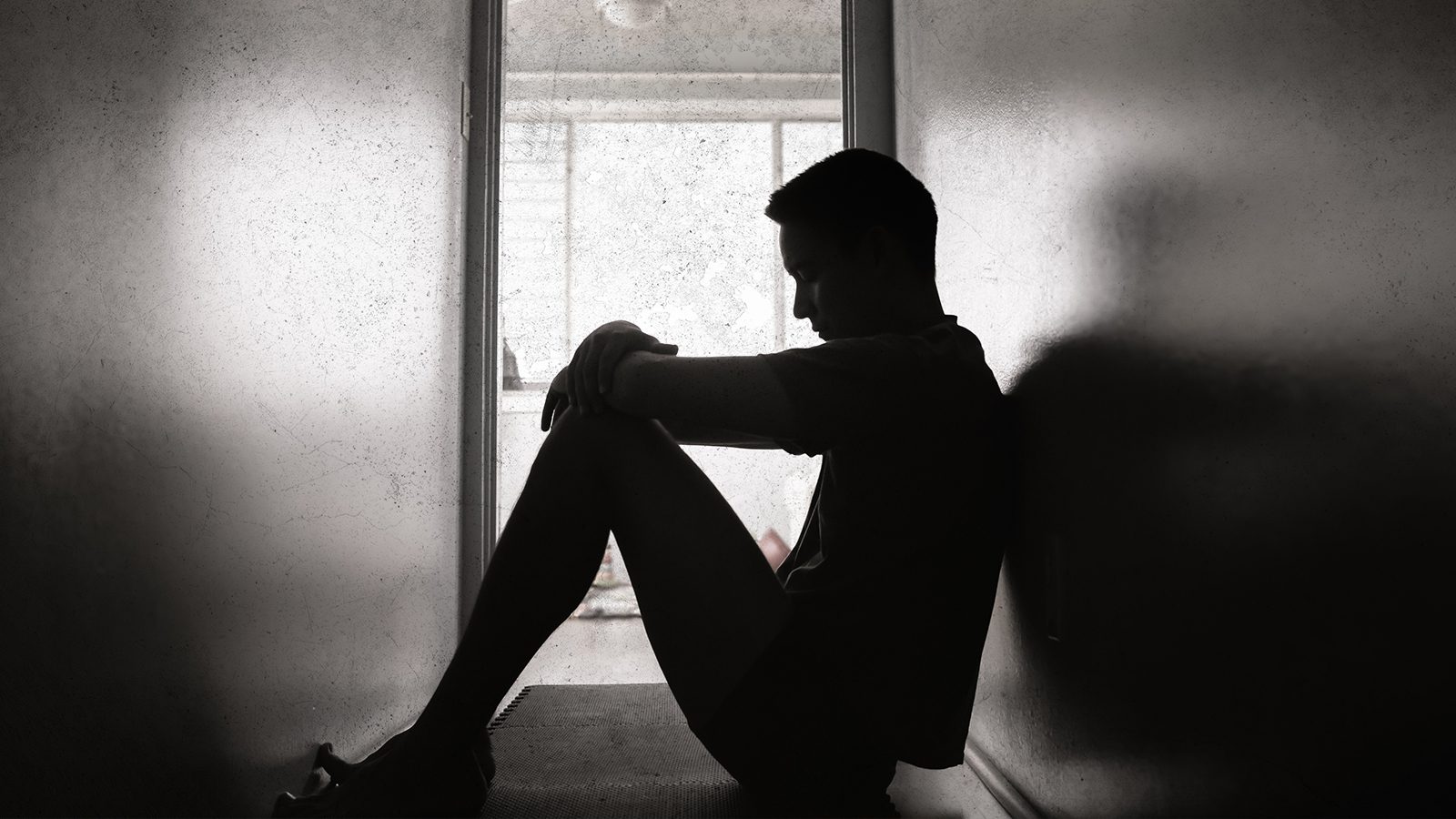Here’s how a man may hide his emotional pain.
The challenges of recognizing and understanding emotional damage can often be shrouded in complexity and ambiguity. In a world where men are frequently encouraged to mask their emotions, the signs of emotional damage can remain hidden beneath a veneer of stoicism and strength. However, peeling back these layers is essential for the individuals and those who seek to form meaningful connections with them.
Identifying signs of an emotionally damaged man can help understand his behavior and build healthier relationships. Understanding emotional trauma and recognizing its manifestations in men is vital to fostering healthier relationships and offering the support and compassion needed for healing. Through this exploration, we aim to empower individuals to navigate these complexities with empathy and insight. Thus, we each learn to foster more profound connections and personal growth.
Note: This article focuses on a man who has pain. For the behaviors women exhibit, please see our companion article.
The Impact of Pain on an Emotionally Damaged Man
Recognizing signs of an emotionally damaged man is crucial in understanding its profound impact on individuals. Sources of emotional trauma can stem from various experiences, such as childhood trauma, abusive relationships, or significant life events. These traumatic episodes, often deep within one’s psyche, can significantly mold a person’s present behavior and reactions.
Past experiences marred by emotional pain and distress can lay the foundation for emotional responses. These seem irrational or disproportionate in current situations. Understanding the sources of emotional trauma and their enduring influence is a crucial step toward empathetically engaging with individuals who carry these burdens.

1. Difficulty in Expressing Emotions
The journey of emotional healing often intersects with the complex realm of fear of intimacy and commitment. The healing process may involve confronting deeply suppressed emotions for emotionally damaged individuals. Suppressing emotions is a typical response to traumatic experiences. As a result, it may lead to a fundamental fear of intimacy and commitment. The fear of intimacy and commitment manifests as an instinctual defense mechanism, protecting against the potential for further emotional pain. However, acknowledging and addressing this fear is a crucial step toward healing. It requires understanding, a deep need to empathize, and a willingness to peel back the layers of suppressed emotions.
2. An Emotionally Damaged Man Fears of Intimacy or Commitment
Commitment issues often stem from a deep-seated fear of intimacy that can be traced back to a complex web of personal experiences and emotions. Exploring the reasons behind this fear reveals a landscape marked by past betrayals, abandonment, or emotional wounds that have yet to heal. Past betrayals, in particular, can cast a long shadow over one’s ability to trust and commit to others fully. These experiences of hurt and disappointment may give rise to a reluctance to invest emotionally in new relationships out of fear of facing similar pain again. Understanding the intricate interplay of past betrayals and personal vulnerabilities is essential in addressing the fear of intimacy or commitment. It’s a process of self-discovery and healing that paves the way toward healthier, more fulfilling connections with others.
3. Overwhelming Trust Issues
Past betrayals can profoundly affect trust in relationships, leaving lasting imprints on one’s ability to connect with others. Past betrayals can create a deep sense of emotional wounds, whether through broken promises, deception, or abandonment. It can also shatter one’s trust. These experiences often lead to heightened vigilance, where emotionally damaged individuals become wary of opening up and sharing their vulnerabilities. The impact of past betrayals also reverberates into current relationships. That’s because the fear of being hurt again can result in emotional distance or a reluctance to invest in the connection entirely. This struggle to trust can hinder the development of deep and meaningful relationships. It can also start a cycle of apprehension and self-protection. Overcoming trust issues involves a process of healing, self-reflection, and gradual steps towards rebuilding trust.
4. Excessive Control or Jealousy
Jealousy and control within a relationship often have roots in deep emotional wounds that manifest as controlling behaviors. These wounds may be born from past experiences of insecurity, abandonment, or betrayal, creating a profound fear of losing the person they care about. This fear can trigger a desperate need to exert control over the relationship, driven by an underlying fear of abandonment or inadequacy. Those who struggle with excessive control or jealousy may monitor their partner’s activities, limit their social interactions, or constantly seek reassurance. These actions can inadvertently suffocate it, eroding trust and fostering resentment. Understanding the connection between emotional wounds and controlling behaviors is essential for breaking free from this destructive cycle.
5. Often Appears Detached or Distant
Emotional detachment is a coping mechanism that often leads emotionally damaged individuals to appear detached or distant in their interactions. This behavior can serve as a protective mechanism to safeguard oneself from emotional pain and vulnerability. When someone has experienced significant emotional wounds, they may tend to distance themselves emotionally as a means of self-preservation. This detachment allows emotionally damaged individuals to shield their innermost feelings, reducing the risk of further hurt or rejection. While emotional detachment can provide a temporary sense of security, it can also hinder genuine connections and intimacy in relationships, leaving both parties feeling isolated. Recognizing the roots and implications of emotional detachment is crucial in fostering healthier and more authentic connections with others.

6. An Emotionally Damaged Man Struggles with Self-Worth
Self-worth challenges often find their origins in past traumas, intricately weaving the threads of an emotionally damaged man’s life story into a complex tapestry of self-esteem issues. Whether rooted in childhood experiences, abusive relationships, or personal failures, these traumas can cast a long shadow over one’s sense of self-worth. The internal narrative from these experiences frequently revolves around not feeling “good enough” or deserving of love, success, or happiness.
These negative self-perceptions become deeply ingrained and often lead to self-sabotage or a reluctance to pursue opportunities that align with their true potential. Recognizing the link between past traumas and current self-esteem issues is the first step toward rebuilding self-worth in the arduous but transformative journey. It involves rewriting the internal narrative, embracing self-compassion, and seeking support and healing to break free from the shackles of self-doubt.
7. Avoidance of Difficult Conversations
Avoiding confrontation is a behavior often rooted in the fear of confrontation itself. This fear can be traced back to past conflicts, where emotionally damaged individuals may have experienced the emotional intensity and discomfort that arise during difficult conversations. Past experiences may have left a profound impact, leading to an aversion to potentially contentious discussions. The fear of confrontation can also connect to a more profound fear of rejection, criticism, or the rupture of a relationship. Consequently, they may resort to avoidance. Thus, they leave essential issues unaddressed and allow resentment to fester. Recognizing the connection between the fear of confrontation and its origins in past conflicts is essential for personal growth and healthier relationships.
8. An Emotionally Damaged Man Overreacts to Criticism
Reaction to criticism can often be marked by an emotionally damaged man’s fragile self-perception, which can be traced back to past criticisms they have faced. When someone has endured hurtful or harsh criticism, it can leave a lasting mark on their self-esteem. This fragility in their self-perception makes them highly sensitive to criticism in the present. Criticism might trigger a cascade of negative emotions as it awakens painful memories of past criticisms, leading to feelings of inadequacy, shame, or defensiveness. Overreacting to criticism can become a defense mechanism, a way to protect oneself from the pain of revisiting past wounds. However, this reaction often hinders personal growth and constructive dialogue. It involves reframing criticism as an opportunity for growth rather than a threat to one’s self-worth and learning healthier ways to respond to feedback.
9. Reluctance to Share Past Experiences
The reluctance to share past experiences of an emotionally damaged man, especially hidden traumas, often stems from the profound pain associated with revisiting traumatic events. These hidden traumas can encompass a range of distressing experiences, from childhood adversities to personal tragedies, and they carry with them emotional scars that run deep. The need to protect oneself from reliving those moments is a natural response, as discussing such painful memories can resurface intense emotions and vulnerability. The fear of being judged can also contribute to the hesitancy to open up about hidden traumas. Indeed, a reluctance to share past experiences is a means of self-preservation. But it can hinder emotional healing and prevent the formation of deeper connections with others. Recognizing the pain associated with hidden traumas and finding safe spaces is a vital step toward breaking free from the grip of the past. It also supports one’s emotional growth.
10. Sleep Disturbances or Nightmares
Trauma and sleep often share a poignant connection, with sleep disturbances or nightmares serving as a tangible manifestation of the emotional scars an emotionally damaged man may carry. Past events, particularly those marked by distressing or traumatic experiences, can haunt his subconscious mind, infiltrating his sleep patterns. Nightmares may replay these events, inflicting emotional turmoil during the night. Sleep disturbances can encompass a range of issues, from insomnia to restless nights marked by vivid and distressing dreams. These disturbances are the body’s way of processing unresolved trauma. Thus, they reveal how profoundly emotional damage can penetrate one’s psyche. Addressing the underlying trauma and seeking therapeutic interventions can aid in restoring peaceful sleep, emotional well-being, and healing.
Final Thoughts on Understanding an Emotionally Damaged Man
Building trust with someone who’s been hurt and navigating relationships with emotional barriers demand profound empathy, patience, and understanding. An emotionally damaged man may carry the weight of past traumas and scars, shaping his behaviors and reactions in intricate ways. To truly understand and support him, it’s essential to recognize that the path to healing is not linear. It requires time and a commitment to fostering an environment of safety and trust.
So remember – patience is vital. But it’s equally important to acknowledge that some emotional wounds may require professional help to heal fully. The journey toward understanding an emotionally damaged man is a shared one, where both individuals in the relationship contribute to breaking down emotional barriers and fostering more profound connections. By extending compassion, offering support, and seeking professional assistance, we can provide the healing and understanding necessary for personal growth and cultivating healthier, more meaningful relationships.





















